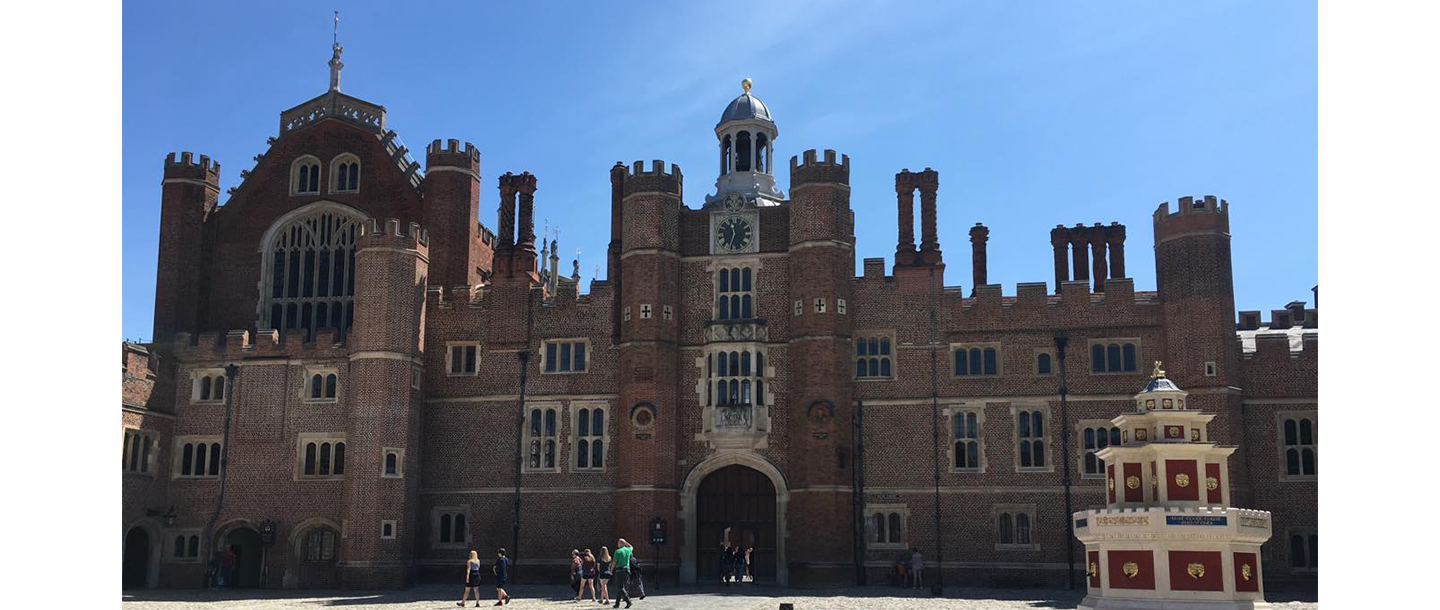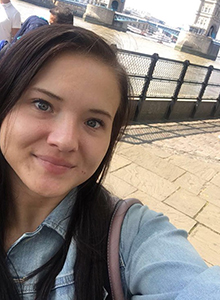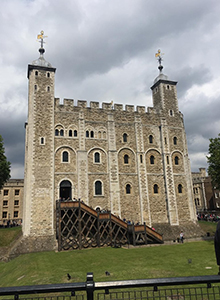Sarah Fischer Travels to London for Archival Research

Hampton Court Palace, England
 History graduate student, Sarah Fischer, received the William E. Lass Grant in the Spring of 2019 allowing her to do archival research in London, England for her master's thesis over the summer 2019 break. Her thesis will examine how epidemic syphilis effected the medical marketplace of early modern London, and how censorship by the Royal College of Physicians effected the treatment of the disease. She primarily worked at the Royal College of Physician Archives looking to find instances of the Royal College of Physicians prosecuting physicians trying to treat syphilis or diseases they were not qualified to treat.
History graduate student, Sarah Fischer, received the William E. Lass Grant in the Spring of 2019 allowing her to do archival research in London, England for her master's thesis over the summer 2019 break. Her thesis will examine how epidemic syphilis effected the medical marketplace of early modern London, and how censorship by the Royal College of Physicians effected the treatment of the disease. She primarily worked at the Royal College of Physician Archives looking to find instances of the Royal College of Physicians prosecuting physicians trying to treat syphilis or diseases they were not qualified to treat.
While in London, Sarah also attended the class “Methods and Sources for Historical Research” through the Institute of Historical Research at the University of London. The class taught students the purpose of archives, how to utilize their resources, and how different types of archives collect or release information. The class visited numerous archives throughout London including:
 Cloth Workers Archive
Cloth Workers Archive- London Metropolitan Archive
- National Archives
- Institute of Historical Research
- Parliamentary Archive
- Lambeth Palace House Library
- British Library
- London Archaeological Archive & Resource Center
Interview with Sarah
What was your favorite part of the trip?
Reading the handwriting of someone who practiced medicine in the 1500’s was kind of surreal. I also enjoyed researching the recipes of treatments written and used by Henry VIII’s physicians in my spare time at the British Library.
What primary sources were among your favorite?
During the class, we got to see the postmortem autopsy report of Queen Anne at the National Archives. This was a particularly interesting document because of the significant medical issues Queen Anne faced during her lifetime. The report was surprisingly short! Although not a traditional primary source, at the London Archaeological Archive and Resource Center they showed our class a leather boot from the 16th century that was found under the stage of the Globe Theatre.
What was the most valuable thing you learned about history?
I really appreciated the way England treated the preservation of their history as highly important. For instance, every new building project in London has to give a certain amount of time for archaeologists to review the site before building upon it.
What was the most valuable thing you learned about travel?
When travelling in a big city by yourself, the most important thing is to always be aware of your surroundings. Never travel with a backpack or keep stuff in your pocket.
Do you have any suggestions for students doing archival research for the first time?
You think you know what to expect but it ends up being very different. I was expecting it would be easier to find sources and had to go through a lot of unhelpful sources in the process of finding good sources. So, try not to get intimidated when you go into the archives or feel overwhelmed. Focus on your goal and not what other people are doing.
How helpful was the Lass Grant?
Extremely. I could not have travelled or done archival research without the Lass Grant


